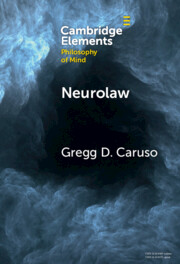Refine search
Actions for selected content:
1 results

Neurolaw
-
- Published online:
- 27 February 2024
- Print publication:
- 21 March 2024
-
- Element
- Export citation
